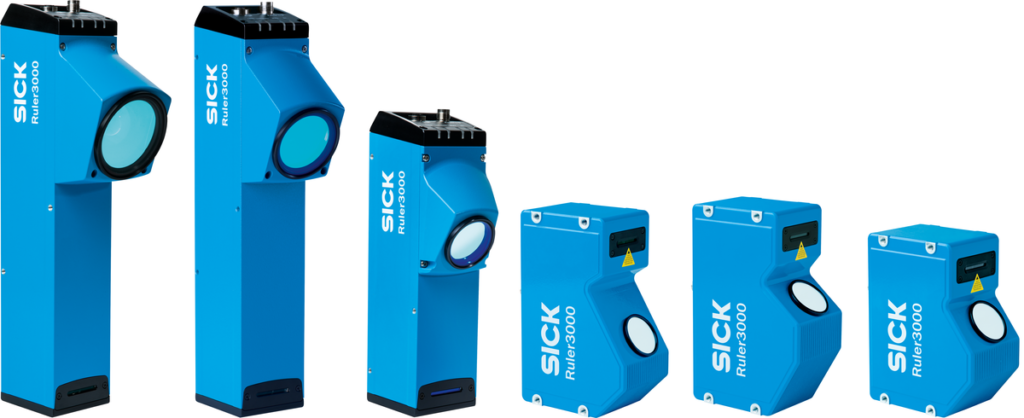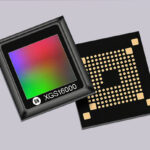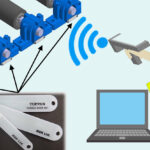ASIA ELECTRONICS INDUSTRYYOUR WINDOW TO SMART MANUFACTURING
SICK Expands Portfolio With New 3D Cameras
With Ruler3002, 3004, and 3010 cameras, SICK is now expanding its portfolio of high-resolution 3D streaming cameras. Particularly, for challenging image-processing applications in the industrial and electronics sectors.
Because of the compact designs, these models expand the Ruler3000 product family’s options for reliably capturing even the smallest details. Thus, is essential to the inspection of electronics and consumer goods components, circuit boards, and semiconductors.
To do so, SICK’s specially designed CMOS sensor generates high-speed 3D profiles of objects. At the same time, the cameras’ height resolutions in the micrometer range deliver precise and reliable readings. Further highlights of the new generation of factory-calibrated 3D cameras include compliance with the image processing standards GigE Vision and GenICam. This ensures easy installation and integration into customers’ systems and machines, not to mention user-friendliness.
The Ruler3000 product family, which features a modular design with IP65/67 protection, can suit a broad range of industrial tasks. In terms of their resolution, exposure and choice of laser, specific models have been optimized for electronics and battery manufacturing applications.

High-speed scanning up to 46 kHz
The SICK cameras Ruler3002, Ruler3004 and Ruler3010 offer guaranteed fields of view of up to 26.6 mm. In addition, all Ruler3000 cameras feature a high-performance CMOS sensor with Rapid On-Chip Calculation (ROCC). Accordingly, the sensors can create 3D profiles for an optimized Region of Interest (ROI) at speeds of up to 46kHz. They can detect object details more quickly. Thus, delivering time savings and makes camera data directly available for process control, with correspondingly higher throughput rates.
The cameras’ excellent light sensitivity and High Dynamic Range (HDR) also help to optimize inspections. Regardless of contrasts or highly diverse lighting conditions in the same scene.
High resolution captures even the smallest details
Depending on the version and application, the 3D streaming cameras employ a class 2 or 3R blue or red laser. Furthermore, they offer a robust design and outstanding accuracy. Regardless of any contrasts or the colors of the object and its background, they deliver height resolutions of up to 0.8 µm and up to 3,200 data points per profile. Thus, making them ideally suited to detecting minute object details in e.g. electronics manufacturing. Also, when it comes to inspecting glossy or low-remission surfaces like the sides of tires, the cameras’ high light sensitivity and dual-exposure function ensure optimum image quality and high-precision measuring.
Because of SICK’s patent-pending Surface+ technology, even small surface scratches can be detected. For example, paint or coating flaws can be reliably identified during glossiness testing.
Simple integration and installation
The three new cameras – which combine laser measuring, optics and analysis in a single, versatile device – can be more compact than the rest of the Ruler3000 family. For that reason, allowing them to be installed even in cramped spaces.
Moreover, the factory-calibrated products mean OEMs and end users can put them to work straightaway. Integrated comfort functions allow you to e.g. quickly and easily set specific field-of-view geometries. The “guaranteed field of view” concept facilitates the transition from the testing and project phase in the lab or design office to the shopfloor and future applications.
In addition, their support for the digital vision interface standards GigE Vision and GenICam ensure plug-and-play access to third-party software like HALCON and LabVIEW – and standardized and unproblematic integration. The Ruler3000 cameras’ software components, Stream Setup and API GenIStream can suit intuitive operation and an enjoyable user experience. Lastly, developers can rely on the flexibility of SICK’s AppSpace software platform and its broad range of image processing tools and sample applications.
Sample application: Surface and welded-seam inspection in battery manufacturing
The 3D camera Ruler3004 – at just 129.5 mm x 60.3 mm x 100 mm (L x W x H), one of the most compact variants in the Ruler3000 series. This helps to ensure the proper completion of various battery-cell installation processes.
For example, once the battery cover has been put in place, the camera uses a class 3R blue laser to inspect the gap between the cover and housing, the cover’s proper positioning, and coplanarity.
The welding process to join the two components is only begun once the cover is correctly positioned. In addition, the Ruler3004 conducts a high-precision quality evaluation on the weld, checking e.g. for any gaps or surplus material.




